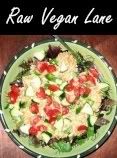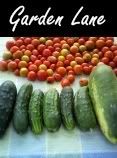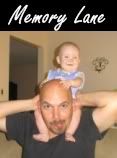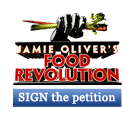 The Making of a Flexitarian
The Making of a Flexitarian
I never explained why I was looking for vegan recipes that would please my meat eatin' hubby.
Here's the background.
We recently got on WIC. For those of you who aren't familiar with WIC, it is a program designed
to make sure that low income families are able to provide nutritious food for children under the
to make sure that low income families are able to provide nutritious food for children under the
age of 5 and pregnant mom's. They of course follow the standard nutritional guidelines. One of
the things they do when you first get signed up is give you advice on what your kids should be
eating. I got 'ding'ed because I let my children drink lots of juice (very watered down) and only
occasionally give them milk. This flies in the face of conventional teaching on nutrition.
Coming from a background of working for a nutrition company and having been a raw foodist, I
have become ambivalent towards milk. It seems to me I have read information that would
suggest that milk didn't do your body good as the dairy industry would have us all believe. And
certainly my raw food stint left me partial to raw products. But our culture bombards us with the
message that we should all be consuming dairy regularly for good health.
Well, after the gentle verbal spanking from the WIC counselor, I was given my coupons for
loads of milk, cheese, and eggs. (among other things) I decided to do some research about
milk again before I started pumping my children full of cows milk. What I found were a couple of
books that confirmed my feelings about milk.
The first was "The China Study, Startling Implications for Diet, Weight Loss and Long-term
The first was "The China Study, Startling Implications for Diet, Weight Loss and Long-term
Health" by T. Colin Campbell, PhD.
"The vast majority of all cancers, cardiovascular diseases, and other forms of degenerative
"The vast majority of all cancers, cardiovascular diseases, and other forms of degenerative
illness can be prevented simply by adopting a plant-based diet." - Campbell
This book essentially lays out very carefully how Campbell went from being a farmers kid and
This book essentially lays out very carefully how Campbell went from being a farmers kid and
writing his dissertation on how animal proteins could be more efficiently produced, to an
advocate of a plant based diet.
He found that there was a direct correlation between animal protein and cancer. You can
He found that there was a direct correlation between animal protein and cancer. You can
almost hear the food industry giants' heart palpitations even as you read those words. Gee, is
there any wonder that this information is not being widely spread?!
His initial study injected rats with a deadly carcinogen, then gave one group a diet with 5%
there any wonder that this information is not being widely spread?!
His initial study injected rats with a deadly carcinogen, then gave one group a diet with 5%
protein and one with 20%. The rats fed a 20% protein diet all developed cancer. The rats fed
5% protein all did not. It also didn't matter how much of the carcinogen was introduced. He
gave one group a very high dosage of the carcinogen and fed them a 5% protein diet, and a low
carcinogen dosage to the other group but fed them a 20% protein diet. Anyone care to guess
carcinogen dosage to the other group but fed them a 20% protein diet. Anyone care to guess
how that came out? The group on the 20% protein diet produced substantially more cancer than
the high carcinogen group. He found he could literally turn on the growth by switching them from
the high carcinogen group. He found he could literally turn on the growth by switching them from
the low protein diet to the high protein diet, then turn it back off by putting them back on 5%. In
fact, the growth was shrunk by the low protein diet.
All this initial research was done with casein, which makes up 87% of cow's milk protein.
All this initial research was done with casein, which makes up 87% of cow's milk protein.
(making my children drink lots of milk, low-fat or otherwise, is not looking good!)
The next step was to test plant based proteins and see if they had the same results. What they
The next step was to test plant based proteins and see if they had the same results. What they
found was that cancer growth was NOT promoted, even at the higher levels of protein intake.
All this information is in just the first 60 pages of the book. He goes on to tell of all the
All this information is in just the first 60 pages of the book. He goes on to tell of all the
supporting research that is out there and of course, as the book is titled, the China study where
he was able to see how his findings held up when humans were involved. He also delves into
why this information isn't disseminated widely when you would think that it would be a huge step
in resolving the cancer crisis in our country.
Good reading. I highly recommend the book. If you need motivation to eat healthy, this book
Good reading. I highly recommend the book. If you need motivation to eat healthy, this book
should do it.
Increase Your Life Span and Your Health Span," by John Robbins. Another highly motivating
book. This one looks at four people groups that are known for producing centarians. (def: those
who live to the age 100+) Not only do they live long, but they are healthy and vital and maintain
who live to the age 100+) Not only do they live long, but they are healthy and vital and maintain
their cognitive abilities. This book is fascinating because it shows that becoming a senior
doesn't mean you have to face the health issues that are common here in America.
Overall, the long-lived groups had very similar diets. (and they couldn't be more different than the
standard American diet!) These are the four people groups studied and the percentage of
animal food in their diets compared with the typical American diet:
Abkhasia 10%
Okinawan Elders 5% (this group has the highest rate of centarians)
Vilcabamba 1%
Honza 1%
Americans 52%
Overall, these people ate far fewer calories than we do here in America, at 1800-1900 calories
a day. Not only are they eating fewer calories, but they are eating nutritionally dense, whole
foods. (perspective: a quarter pounder with cheese and a large fry at McDonalds will run you
900 calories. Add a chocolate shake and you are 1280 calories for one meal.)
900 calories. Add a chocolate shake and you are 1280 calories for one meal.)
Robbins book covers the other aspects that play a role in the health and longevity of these
people groups with lots of great chapters like: Born to Move - why your cells and your bones
crave a challenge, The Strength of the Heart - why loneliness will kill you faster than cigarettes,
and Keeping Your Marbles - simple things you can do to prevent Alzheimer's.
But I will let you read all about for yourselves. Back to the issue of vegan eating.
After reading all this information, I am committed to becoming a flexitarian. Never heard of that?
Yeah, me either. A flexitarian is a fairly new term and still being defined. Vegans and
vegetarians apparently have an issue with the term, which is why I have an issue defining myself
as a vegan or vegetarian. For most vegetarians, the motivation is animal rights. Obviously,
as a vegan or vegetarian. For most vegetarians, the motivation is animal rights. Obviously,
having butchered my own chickens this summer, I am not motivated by my concern for animals.
My motivation is strictly health. And, based on the information at hand, a mostly plant based
My motivation is strictly health. And, based on the information at hand, a mostly plant based
diet of whole foods is the key to optimal health. So, am I going to have issue with the occasional
meat, cheese or egg that crosses my lips? No. There are definitely nutritive values that can be
obtained from them (B12 is the first thing that comes to my mind) and as a small part of my diet,
should not be a stumbling block to good health.
meat, cheese or egg that crosses my lips? No. There are definitely nutritive values that can be
obtained from them (B12 is the first thing that comes to my mind) and as a small part of my diet,
should not be a stumbling block to good health.
Plus, I have to wean the family off our animal centered diet and move towards this flexitarian
eating. We are currently loaded up with milk, cheese, eggs, and chicken. These will be eaten,
but I will try to make them less and less the centerpiece of a meal.
So there you have it. And just for fun, here's a You Tube video that I found about a meat eating
cowboy that went vegan. (for health reasons) And since the weight results aren't in this clip, he
lost 30 pounds! (I knew you'd be curious ;)
Posted in: Flexitarian, Raw_Vegan Lane, videos on Tuesday, November 17, 2009 at at 4:06 PM
















